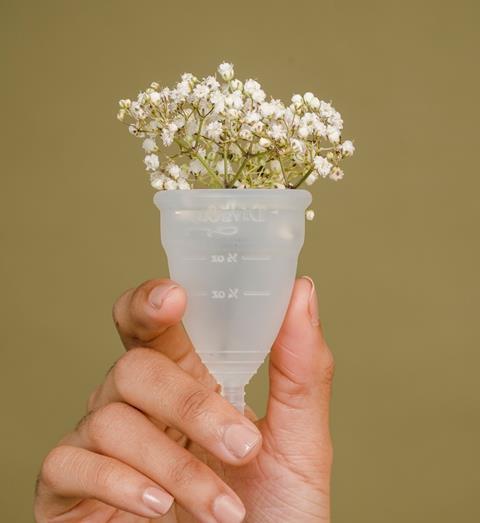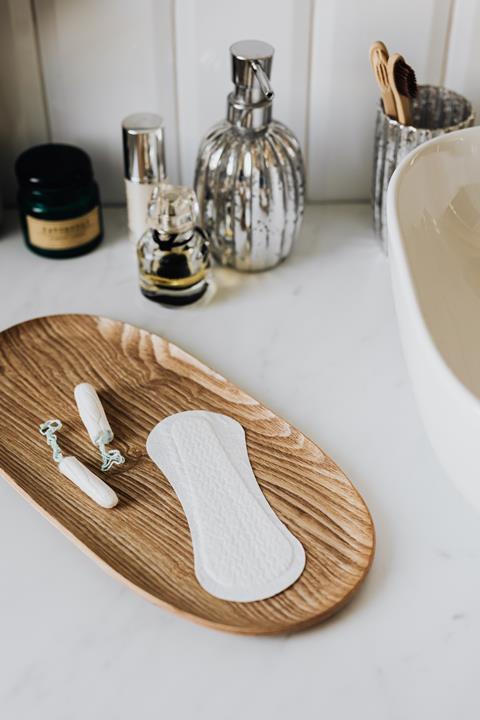Nutritionist Clare Backhouse explains how to harness your hormonal cycle

This month, we are going to tackle a very monthly issue – the menstrual cycle. And yes, I really think it’s possible to love our cycles!
Menstruating women have an ever-shifting experience of life. Every week or so looks hormonally different from the previous one.
My impression is that many women, perhaps even the majority, have inherited the idea that periods are a pain, a ‘curse’ or an inconvenience.
Before going on, I do want to recognise the fact that there are many conditions, such as endometriosis, which may create significant pain around the monthly cycle.
Most of us will know someone (if not ourselves) who has literally been incapacitated by her cycle. Such challenges require careful, holistic support.
Yet even for those who don’t suffer from medical conditions, periods are still often thought of as a monthly bore that we must suppress or ignore as best we can. But what if, medical conditions aside, our monthly cycles contain a kind of super-power? What if our menstrual phases give us a mighty capacity to navigate life well, instead of just getting in the way?

Understanding our cycles
I began to ask myself those radical questions after reading two books, Maisie Hill’s Period Power (Green Tree) and Alisa Vitti’s In the Flo (HQ). Both authors take a similar approach, which might be summarised as: our cycle is like a beautiful horse, just waiting to be saddled up to take us forward!
As believers in a creator God of love, perhaps it should be no surprise to us that a woman’s cycle is a masterpiece. The key is knowing how to appreciate our own. After all, a horse is a fearsome creature if you haven’t been shown how to ride.
Due to the shifting balance of hormones, the specific ‘super-power’ of each phase in the cycle is different, just as our capacity varies across 24 hours. For example, oestrogen is highest at and after ovulation, which means our sociability, verbal skill and communication are strongest then.
Alisa Vitti usefully explains the four phases of the menstrual cycle by comparing them to a 24- hour day:
The follicular phase: This is when the body prepares for ovulation and can be compared to the morning, which lends itself to focused planning and work.
Ovulation and the early luteal phase: When an egg is released from an ovary. This can be equated with the afternoon, when we tend to be more sociable and outgoing.
The luteal phase: At the end of this phase the body either prepares for a baby or prepares for the next period. This is like the evening: we want to relax and calm down.
The menstrual phase: When the menstrual period happens. This is like night-time, when we need hibernation and rest.
As I’ve said before, knowing how our bodies work, and what they need, can empower us to look after them with more compassion and love.
In the past I’ve berated myself for sometimes wanting to avoid socialising. But I had never observed that this always occurs while I’m having my period. If I had understood that our period is the monthly equivalent of night-time (when we quite legitimately want to hide under a duvet) perhaps I would have treated myself more compassionately.
These days, I avoid not-strictly-necessary invitations at the start of my period, knowing I’ll need a little more rest. And, where possible, I now schedule presentations or big meetings towards my ovulatory phase, knowing I’ll be at the top of my verbal game.
This does not mean that menstruators can’t be as productive as non-menstruators – it’s just that the intensity is spread unevenly across the cycle, just as our productivity within 24 hours is spread unevenly to include both work and rest.
So how could we love ourselves and our cycles more wisely with nutrition?
Nutrition and our cycles
The first step is to getting to know our own cycle. For some, period-tracking phone apps are the way to go. For others, simply noting the first day of their period in a diary is enough to remind them where they’re at.
Once we know our own cycle, we can anticipate its phases and support ourselves wisely.
Perhaps the most useful nutrition insight is knowing that our food metabolism incrementally speeds up after ovulation. This explains the cravings as our period approaches: we’re literally burning through fuel faster.
Once we know this, in the days before our period we can focus on filling, nutrient-dense protein foods at each meal such as meat, fish, eggs, beans with grains, nuts and seeds, and accessing plenty of fibre by eating a good variety of vegetables.
We can also make rich, comforting dishes such as hearty soups and stews, so that we’re less likely to want the ‘quick fix’ of sugar or refined-carbohydrate snacks, which in turn can trigger irritability.
It may take a while to notice our own body’s shifting needs, as well as those of others. But loving ourselves wisely helps us to love others better. And less premenstrual tension and self-criticism will likely make us more enjoyable to be around too.
So here’s to loving our cycles, and the super-powers that come with them.
Next time, we’ll be looking in more depth at mealtimes, and how to make them work for us.
For more information, contact Clare through her website: transformationnutrition.org


























